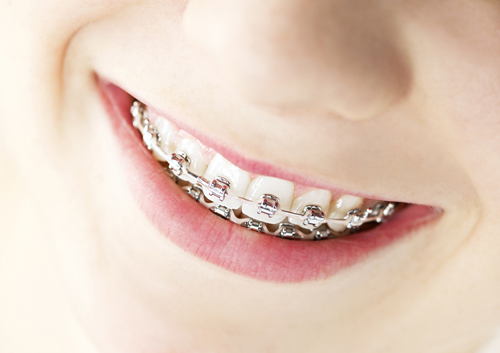Orthodontics and Whole Body Health
January 25th, 2023

In recent years, many links have been established between orthodontic treatments and whole body health. According to the National Institute of Dental and Craniofacial Research, researchers have observed that people with gum disease are more likely to develop heart disease or experience difficulty controlling blood sugar than people without gum disease. While researchers continue to find associations between oral health and the overall health of the body, as of yet it hasn’t been determined whether gum disease is the sole cause of these health conditions. What can be determined, however, is that good oral health isn't just about maintaining a healthy smile; it has an impact on the health of your entire body.
The associations between gum disease and whole body health
The links between the health of your mouth and the health of your body are too many to ignore. Is it a coincidence that gum disease and other health problems occur together? Researchers don’t think so, despite the lack of definitive proof.
Here are four possible connections between the health of your mouth and the health of your body.
- Excessive oral inflammation has been linked to a greater incidence of clogged arteries.
- The American Society of Microbiology has revealed that certain types of oral bacteria can infect the arterial cells and weaken the wall of the heart.
- Loose teeth are often believed to be a warning sign for osteoporosis, a disease that causes the bones to become less dense.
- Some studies suggest women with gum disease are more likely than those without gum disease to deliver preterm, low-weight babies.
Orthodontics and gum disease
So what does undergoing orthodontic treatment at OrthoCare Orthodontics have to do with gum disease? Braces do so much more than give you a nice-looking smile. Quite simply, straight teeth are easier to keep clean than crooked teeth. Your toothbrush is able to remove more plaque-causing bacteria, and your floss is more effective at ridding tiny particles between your teeth.
Despite the lack of hard facts in these findings, the message is clear: If you improve your oral health, you will also have a greater chance of maintaining the health of your entire body. And that’s a chance Cooper, Ford S. and our team at OrthoCare Orthodontics believe is worth taking. For more information about this topic, please give us a call at our convenient Charlotte, NC or Spartanburg, SC office or ask Cooper, Ford S. during your next visit!




 Website Powered by Sesame 24-7™
Website Powered by Sesame 24-7™